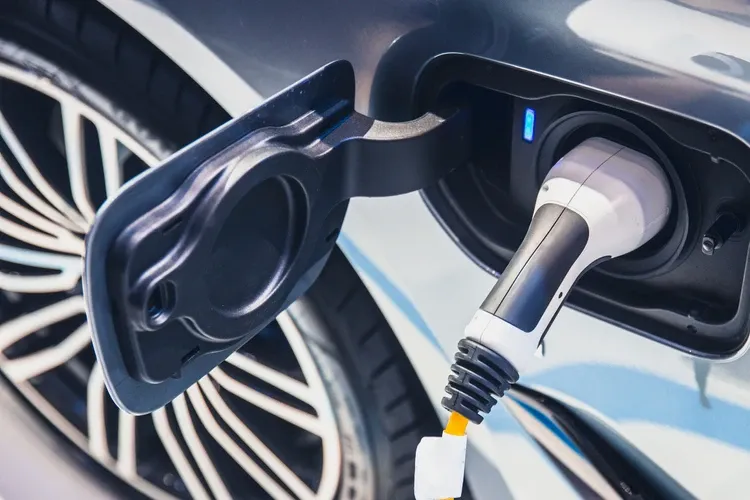The Biden administration released aggressive new emissions standards meant to encourage car manufacturers to produce more electric vehicles.
The new policy released Wednesday by the Environmental Protection Agency would decrease greenhouse gas emissions by nearly 50% over the next eight years across the national fleet, as well as reduce more than 95% of “fine particulate matter from gasoline-powered vehicles.” The administration claimed that the move would create $100 billion in “annual net benefits” to society in reduced fuel costs and decreased health expenditures due to higher air quality.
“These strongest-ever pollution standards for cars solidify America’s leadership in building a clean transportation future and creating good-paying American jobs, all while advancing President Biden’s historic climate agenda,” EPA Administrator Michael Regan said in a statement. “This administration is pairing strong standards with historic investments to revitalize domestic manufacturing, strengthen domestic supply chains, and create good-paying jobs.”
The EPA added that the rules would be accomplished if 56% of new vehicle sales are electric and 13% are partially electric by 2032, which would mark a significant increase since less than 8% of new car sales were electric as of 2023. The agency claimed the move would accelerate “adoption of cleaner vehicle technologies” as sales for electric cars “hit record highs last year.”
House Speaker Mike Johnson, a Republican from Louisiana, said the move was a “misguided” effort that manipulates the marketplace. “This is another radical, anti-energy crusade that will limit consumer choices, raise costs on American families and devastate auto manufacturers,” he remarked. “More regulations and higher costs are the opposite of what our country needs.”
Electric vehicles, which are powered by electricity stored in batteries rather than gasoline processed by internal combustion engines, have increased in market share over the past decade. Federal agencies have introduced favorable rules to encourage more rapid adoption of electric vehicles, while President Joe Biden enacted substantial tax credits for certain models through the Inflation Reduction Act passed nearly two years ago.
Critics of such policies note the risks of artificially increasing consumer demand for the nascent technology. States such as California, Massachusetts, New Jersey, and Oregon have mandated that all new passenger vehicles must produce zero emissions within the next decade.



